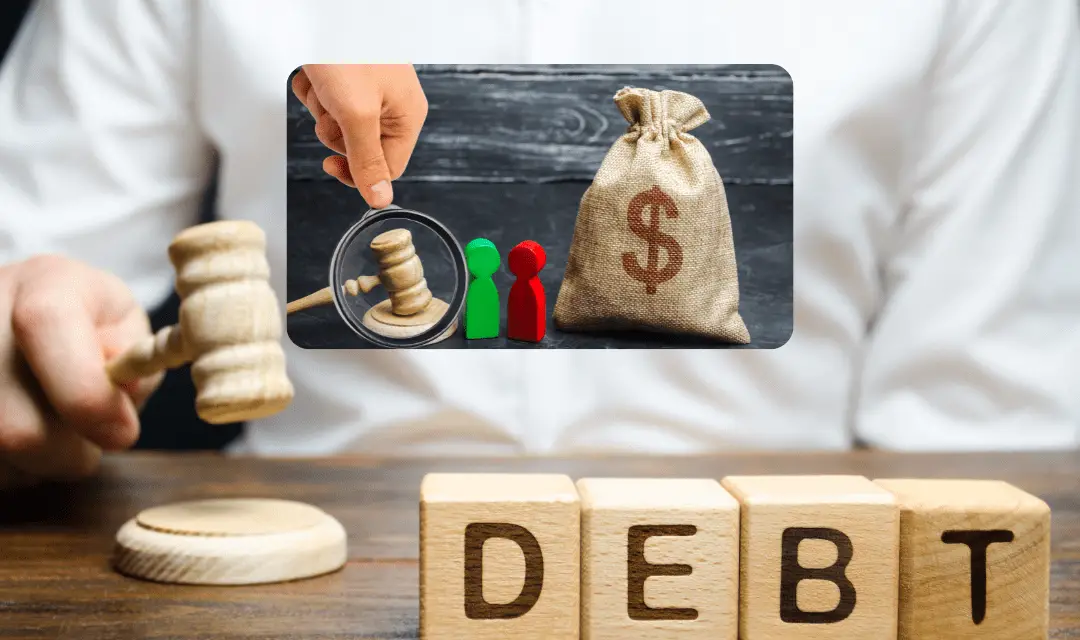No Jail Time, I am Debt Proof
Perhaps, you have heard stories about credit card companies threatening to file a criminal action against credit card holders for non-payment of their monthly dues or indebtedness. The same also happens with friends who promise to pay by the end of the month but failed to do so.
However, one feels unshaken because he or she knows about a rule which provides that no person can be imprisoned for simply not paying a debt. Well, Philippine laws do provide for the prohibition against imprisonment by reason of indebtedness.
Article III, Section 20 of the 1987 Constitution states that, “No person shall be imprisoned for debt or non-payment of a poll tax.” In the case of Lozano vs. Martinez,1 the Supreme Court explained the reason for such prohibition. Thus:
“Viewed in its historical context, the constitutional prohibition against imprisonment for debt is a safeguard that evolved gradually during the early part of the nineteenth century in the various states of the American Union as a result of the people’s revulsion at the cruel and inhumane practice, sanctioned by common law, which permitted creditors to cause the incarceration of debtors who could not pay their debts.2
“At common law, money judgments arising from actions for the recovery of a debt or for damages from breach of a contract could be enforced against the person or body of the debtor by writ of capias ad satisfaciendum.3
“By means of this writ, a debtor could be seized and imprisoned at the instance of the creditor until he makes the satisfaction awarded.4
“As a consequence of the popular ground swell against such a barbarous practice, provisions forbidding imprisonment for debt came to be generally enshrined in the constitutions of various states of the Union.5
“This humanitarian provision was transported to our shores by the Americans at the turn of the century and embodied in our organic laws.6
“Later, our fundamental law outlawed not only imprisonment for debt, but also the infamous practice, native to our shore, of throwing people in jail for non-payment of the cedula or poll tax.”7
Can a person be imprisoned by non-payment of debt?
Put in simple words, no person can be compelled to pay debt by threatening the latter with the filing of criminal actions. Suits arising from non-payment of debts are only civil in character which cannot be a ground for criminal action.
It must be noted, however, that the debt intended to be covered by such provision are only obligations and liabilities arising from a contract.
Those that involve fraud and those that arise from a crime are not covered by the prohibition.8 One reason for the prohibition is the acknowledged fact that people are habituated with borrowing money and incurring debts.
If the law permits incarceration for simple debts, the jails will easily be clogged and overcrowded. Hence, jail management will no longer comply with the constitutional safeguard against substandard or inadequate penal facilities for prisoners.9
Furthermore, our laws are fair enough to balance between the rights of the creditor and debtor. There are legal remedies for creditors which are not criminal actions but civil suits since obligations arising from indebtedness are civil in nature.
What happens if someone sues you and you have no money?
Note, however, that the prohibition on non-imprisonment should not make you complacent. If someone filed a civil action against you for non-payment of your debt, the Rules on Civil Procedure provides that:
“If the judgment obligor cannot pay all or part of the obligation in cash, certified bank check or other mode of payment acceptable to the judgment obligee, the officer shall levy upon the properties of the judgment obligor of every kind and nature whatsoever which may be disposed of for value and not otherwise exempt from execution giving the latter the option to immediately choose which property or part thereof may be levied upon, sufficient to satisfy the judgment. If the judgment obligor does not exercise the option, the officer shall first levy on the personal properties, if any, and then on the real properties if the personal properties are insufficient to answer for the judgment”10
This means that if you have no money when the decision of the Court is against you, the creditor, through the Tribunal’s power, can satisfy such judgment by levying the debtor’s property up to such amount as will be necessary to satisfy his or her obligations.
The same rule provides for the limitation on levying the properties of the debtor, to wit:
“When there is more property of the judgment obligor than is sufficient to satisfy the judgment and lawful fees, he must sell only so much of the personal or real property as is sufficient to satisfy the judgment and lawful fees.”11
Can you be jailed for credit card debt or obligation?
A good discussion on the payment of debt is on credit card obligations. As a general rule, no person can be jailed for non-payment of his credit card obligations, owing to the prohibition provided for by the Philippine Constitution.
However, like most rules, it admits an exception. Under the Access Devices Regulation Act of 1998 or Republic Act No. 8484, it provides that:
“a cardholder who abandons or surreptitiously leaves the place of employment, business or residence stated in his application or credit card, without informing the credit card company of the place where he could actually be found, if at the time of such abandonment or surreptitious leaving, the outstanding and unpaid balance is past due for at least 90 days and is more than P10,000, shall be prima facie presumed to have used his credit card with intent to defraud.”12
Therefore, it follows that a defaulting obligor may be put to prison should he fail to inform the credit card company of his new residence because such failure is a prima facie evidence that such individual has intent to defraud his creditors.
Of course, this will eventually transpire after a criminal action for fraud against purported obligor is filed and a decision is rendered against him or her.
What are the consequences for non-payment of debt?
Non-payment of debt has consequences both for the debtor and creditor. Although a debtor is obliged to pay the loan or debt he has incurred at the time it is due, the creditor is not authorized to throw such debtor in jail because of his non-payment.
Unless criminal fraud permeates, the only allowed and recognized means for a creditor to receive back what he owns is to avail the compulsory processes of the court by filing a civil action lawfully compelling or forcing the debtor to pay.
Assuming the creditor can prove his case, such action will subsequently result to the payment of debt and other damages that the creditor incurred for the delay in such payment.
In addition to that, such taint in the debtor’s capacity to pay can block his applications for loans in other banks.
On the part of the creditor, he may have suffered business losses as a consequence of the debt not being paid in his favor. If it is a large company, it may as well experience operational losses but it can carry on after some time.
If the creditor is just another individual, it will hurt his financial stability and will suffer damages in different forms.
What states can you go to jail for debt?
Despite this prohibition in the Philippines, imprisonment for non-payment of debt is still valid for other countries. For example, Germany still allows debtor’s detention as a means to compel the payment or to ensure a trial against them to garnish credits or wages of levy properties.
In the Netherlands, the judge can order gijzeling or hostage of individuals who don’t pay their debts. In Greece, after 173 years of practice of imprisonment for debtors, it had been declared unconstitutional.
However, debts to private banks are still punished with imprisonment. In the United Arab Emirates, including Dubai, debtors are put to jail for failure to pay debts. In return, there are many cases of fleeing to another country for individuals who fail to pay.
Why do you think they still do that?
These states still do this practice because this is the only way they know how to compel debtors to pay their obligations.
It is hard to collect debt. Maybe, because of this nature, States, such as those mentioned, have institutionalized, still, jail time, to combat debt ignorance. Although for some jurisdiction, it is primitive in character.
Countries have a different approach and if they think that such approach is necessary, just, and valid, then they have all the right to do so.
Final Thoughts
Although the law provides that one cannot be imprisoned for non-payment of debt, the obligation to pay what you owe another will always stand.
As you may have read above, one can never escape the liability to pay, no matter how lenient you think the law is. The easiest way to lift the weight off your shoulder is to just settle the indebtedness.
Better yet, it is wise and prudent if one will not borrow money because he knows he cannot pay.
The phrase “Promises are meant to be broken” is not always applicable because you have to keep your promise of paying.
If you have no means to pay, don’t be afraid to make negotiations such as asking for a more convenient due date of lowering your interest rate.
Never give your creditors the chance to think that you are running away from your liability which would prompt them to institute actions against you. Remember, no one shall be unjustly enriched or benefited at the expense of another. So pay your debts.
- Florentina A. Lozano vs. The Honorable Antonio M. Martinez and the Honorable Jose B. Flaminiano, G.R. No. L- 63419 December 18, 1986[↩]
- Ibid.[↩]
- Ibid.[↩]
- Ibid.[↩]
- Ibid.[↩]
- Ibid.[↩]
- Ibid.[↩]
- George H. Ganaway vs. J.W. Quillen, G.R. No. L-18619 February 20, 1922[↩]
- Article III, Section 19 (2), 1987 Philippine Constitution[↩]
- Rule 39, Section 9 (b), 2020 Rules of Court[↩]
- Ibid.[↩]
- Section 14, RA 8484[↩]




